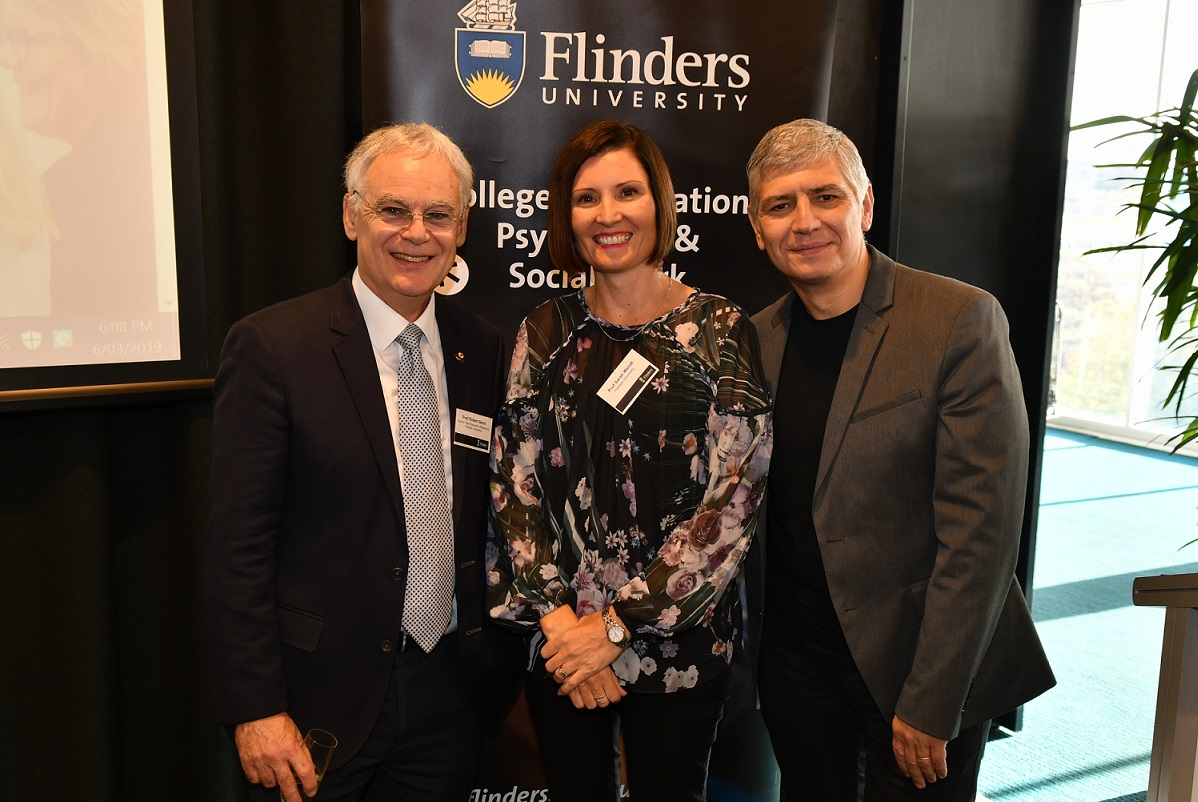
The new Social Work Innovation Research Living Space (SWIRLS) at Flinders University launched on 6 March 2019 – an innovative national social work research centre and an important part of the Órama Institute for mental health, wellbeing and neuroscience.
Established by the College of Education, Psychology and Social Work, SWIRLS brings together social work academics, practitioners and policy advocates to showcase social work research in a different collaborative model – an important first for social work in Australia.
Through a multi-disciplinary ‘living lab’ approach, the centre aims to advance social work practice, policy and research. SWIRLS’ adaptive and responsive environment will be able to further social justice and shape the future workforce through heightened knowledge, education, and professional development.
The official launch of SWIRLS, before an audience of more than 70 government department and industry CEOs, practitioners, academics and higher degree students at ALERE Function Centre, highlighted that SWIRLS research will enable innovation and leadership in educating the future workforce of social workers.
“SWIRLS’ ‘living space’ approach is co-designed with key stakeholders and led by academics with a deep field-based understanding of social issues,” Flinders Deputy Vice-Chancellor (Research) Professor Robert Saint said to the audience.
“Reflecting Flinders University’s mission of changing lives and changing the world, our partnerships with government and community organisations are helping to develop innovative solutions for some of our most difficult social challenges.”
Professor Sarah Wendt leads the initiative and says SWIRLS champions the rigour of social work research by tackling complex issues through collaboration to generate better prevention, intervention and services that empower social workers, individuals, families and communities.
“SWIRLS is a research centre – but it is not a building. It is an ever-changing space, defined by the people who create it,” explains Professor Wendt. “For example, we are working alongside young women at risk of homelessness to understand their service needs and safety. We are meeting and listening to staff from Youth Justice to better understand the needs of 8-to-14-year-olds.
“SWIRLS is a collaboration through listening, identifying, documenting, trialing and testing ideas, and evaluating practice. Our partnerships will tackle the big questions of how we can make a difference, and identify what works best.”

